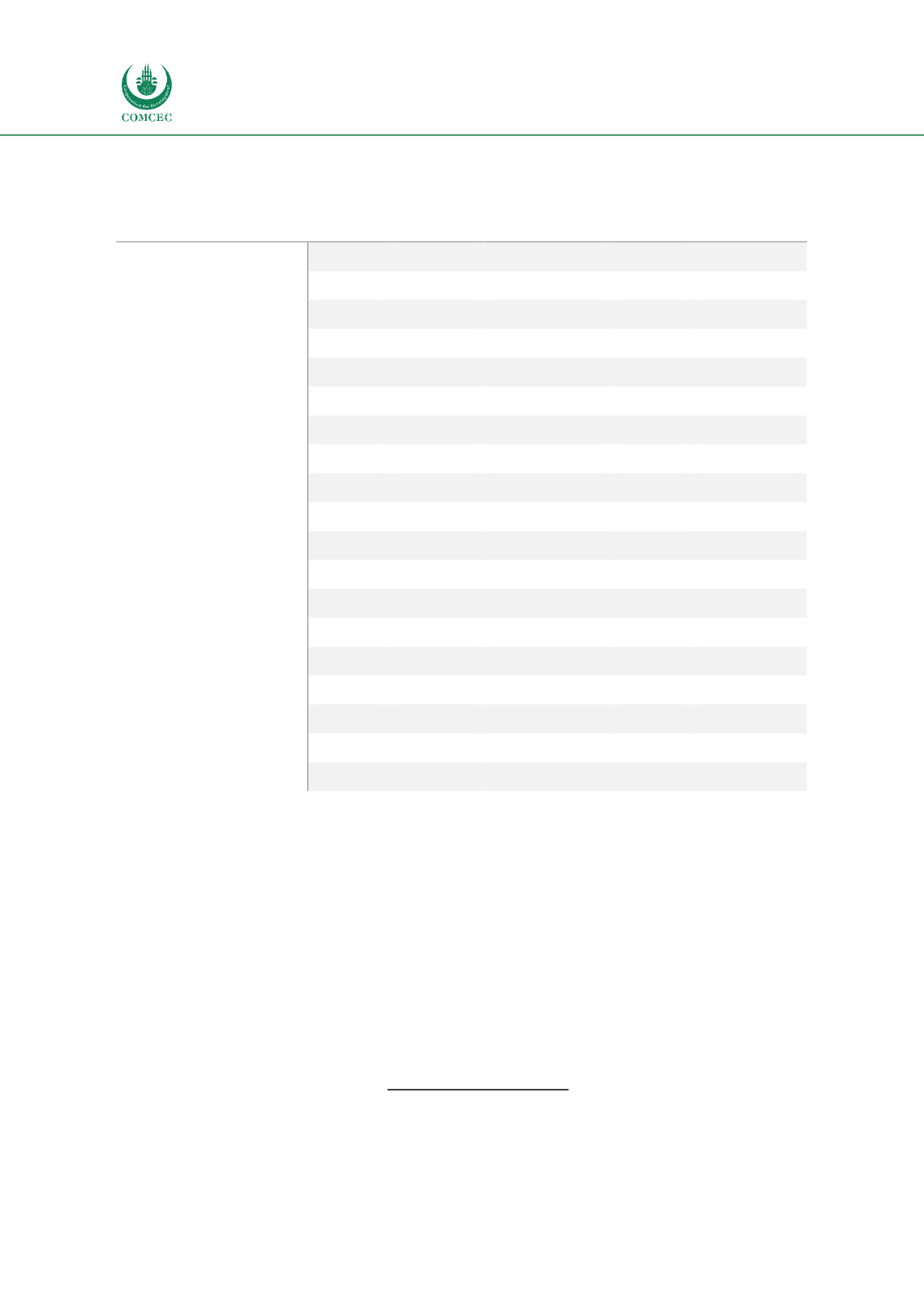

Improving Customs Transit Systems
In the Islamic Countries
118
Table 46: Number of TIR Carnets issued by OIC MS
Countries
2016
2017
Change in %
(2017-2016)
2018
Change in %
(2018-2017)
Afghanistan
0
0
0.00%
100
Albania
2250
600
-73.33%
800
33.33%
Azerbaijan
2800
1900
-32.14%
1800
-5.26%
Iran
118000
115000
-2.54%
165000
43.48%
Jordan
50
50
0.00%
0
-100.00%
Kazakhstan
23500
21300
-9.36%
14700
-30.99%
Kuwait
0
0
0.00%
0
0.00%
Kyrgyzstan
4800
4100
-14.58%
2000
-51.22%
Lebanon
550
600
9.09%
500
-16.67%
Morocco
0
0
0.00%
0
0.00%
Pakistan
50
Syrian Arab Republic
650
500
-23.08%
300
-40.00%
Tajikistan
2350
3100
31.91%
3400
9.68%
Tunisia
0
0
0.00%
0
0.00%
Turkey
213900
200000
-6.50%
189000
-5.50%
Turkmenistan
13000
1000
-92.31%
6000
500.00%
United Arab Emirates
-
50
0
-100.00%
Uzbekistan
27000
14000
-48.15%
32400
131.43%
Total
408850
362200
-11.41%
416050
14.87%
Source: UNECE
3.2.6
Correlation Analysis for All CTR Variables
In order to check the influence of different variables analyzed in this study and the
interdependence between these variables and other variables, we have conducted the
correlation analysis. For a measure of association between two variables, researchers rely
heavily on a statistic called Pearson’s “r,” or the correlation coefficient. The Pearson’s correlation
coefficient (r) is a measure of the association between two variables and is used for the measure
of association between CRM variables important for successful implementation of CRM system,
as explained below. The formula for Pearson’s r for two variables X and Y is:
=
∑( − ̅ )( − ̅ )
[∑( − ̅ )
2
] [∑( − ̅ )
2
]
















